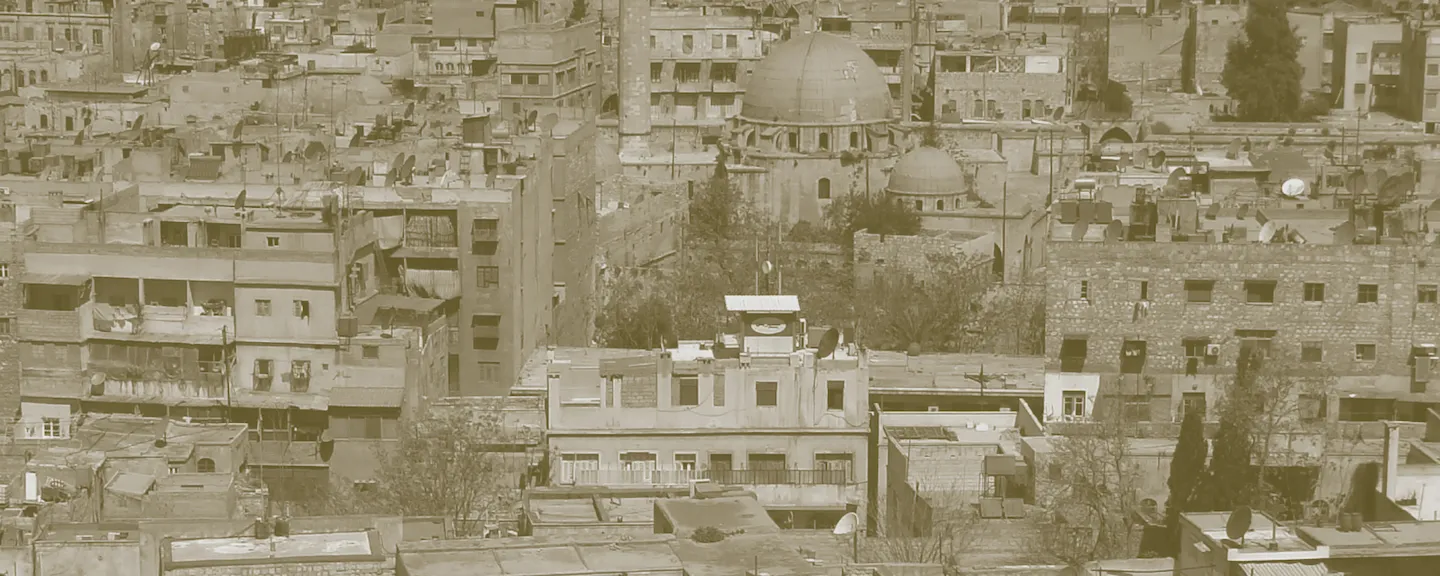- Home
- >
- APU Articles
- >
- News Article
Resilient Hope
October 23, 2017 | Written By Bethany Wagner

Aid came from around the globe to greet the evacuees. One of the first responders, relief organization World Vision, sent a team with food, water, blankets, and support as the displaced prepared to navigate an unknown future. Angela Huddleston ’05, manager of World Vision’s Syrian humanitarian response program, serves as the driving force behind these teams, organizing relief efforts for displaced people and refugees throughout Syria and the surrounding regions.
From a young age, Huddleston felt called to work internationally, and while studying sociology at APU, she discovered humanitarianism, just emerging as a recognized career field. That summer, she interned at World Vision’s Southern California headquarters and knew she had found her calling. After nine years of relief work in three countries and studying human rights in London, she moved to Turkey to manage World Vision’s response to the Syrian humanitarian crisis, considered the worst humanitarian emergency in recent history.
Based in neighboring Turkey, Huddleston develops and implements strategic programs to address the turbulent reality in Syria, and coordinates fundraising and communications with local and international partners. “Every decision has major consequences,” she said. “As one of my most important responsibilities, I connect with and support local Syrian organizations who act as our hands and feet within Syria and keep us informed of the constantly shifting situation.”
Last year, a Syrian nonprofit informed Huddleston of the dire need for a hospital specializing in maternal and neonatal care near the front lines of war activity. Huddleston’s team raised support, and one year later, a Syrian mother underwent a successful C-section to deliver a healthy baby girl, named after the new reproductive health facility, Miriam’s Women’s and Children’s Hospital. “That mother would have had to travel 50 miles through dangerous regions to a high-risk hospital otherwise,” said Huddleston, who is now developing plans for another hospital in North Syria that will provide quality care for more than 250,000 women and children. “This is a step of faith, because terror groups target hospitals on a regular basis,” she said. “But even in the middle of war, women have babies and children get sick. We cannot forget these needs.”
Working 60 to 80 hours per week, Huddleston battles discouragement in the face of seemingly endless conflict and unrest. “It’s often impossible to predict the next day,” she said. “We might spend weeks developing a project proposal, only to discover an armed group has taken over the region and shut down our operations there.” In the midst of these dark realities, Huddleston finds hope in people. The majority of her co-workers and team members are Syrians who lost their homes and loved ones, some enduring displacement several times. “Their resiliency, intelligence, humor, and relentless dedication to our cause inspires me to continue,” she said.
Huddleston encourages believers to pray for a permanent ceasefire, safety for refugees and aid workers, and political stability throughout the Middle East. “We must do everything we can in our current positions to give refugees options for a future through prayer, financial support, and advocacy,” she said. “We have a responsibility to intercede and care for the least of these, whether near or far.”
For more information on the current refugee crisis and ways to support, visit worldvision.org.